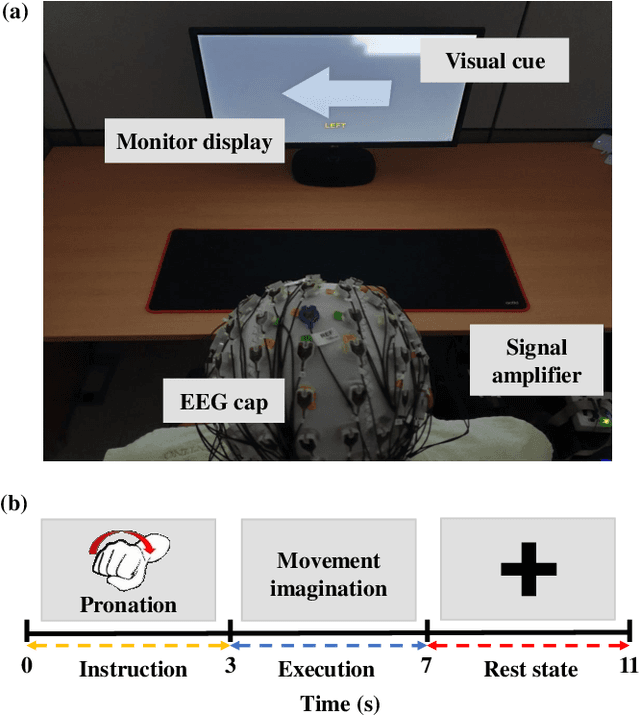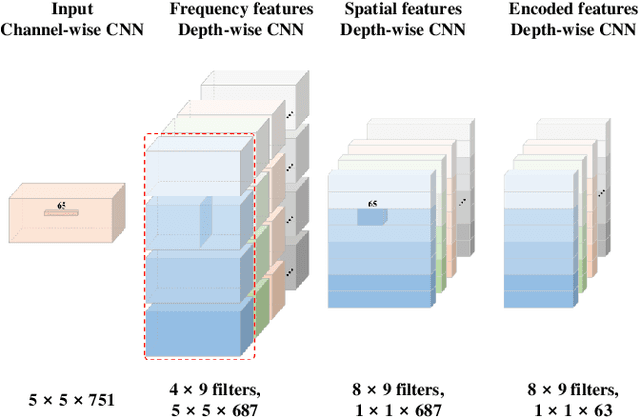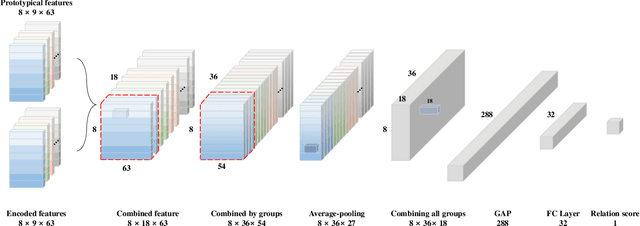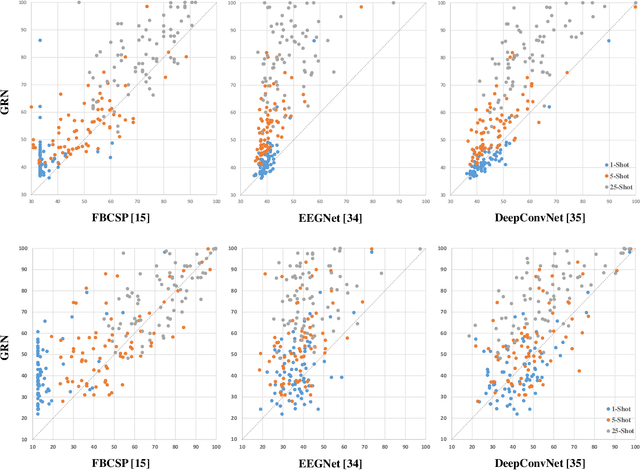Gradual Relation Network: Decoding Intuitive Upper Extremity Movement Imaginations Based on Few-Shot EEG Learning
Paper and Code
May 06, 2020



Brain-computer interface (BCI) is a communication tool that connects users and external devices. In a real-time BCI environment, a calibration procedure is particularly necessary for each user and each session. This procedure consumes a significant amount of time that hinders the application of a BCI system in a real-world scenario. To avoid this problem, we adopt the metric based few-shot learning approach for decoding intuitive upper-extremity movement imagination (MI) using a gradual relation network (GRN) that can gradually consider the combination of temporal and spectral groups. We acquired the MI data of the upper-arm, forearm, and hand associated with intuitive upper-extremity movement from 25 subjects. The grand average multiclass classification results under offline analysis were 42.57%, 55.60%, and 80.85% in 1-, 5-, and 25-shot settings, respectively. In addition, we could demonstrate the feasibility of intuitive MI decoding using the few-shot approach in real-time robotic arm control scenarios. Five participants could achieve a success rate of 78% in the drinking task. Hence, we demonstrated the feasibility of the online robotic arm control with shortened calibration time by focusing on human body parts but also the accommodation of various untrained intuitive MI decoding based on the proposed GRN.
 Add to Chrome
Add to Chrome Add to Firefox
Add to Firefox Add to Edge
Add to Edge